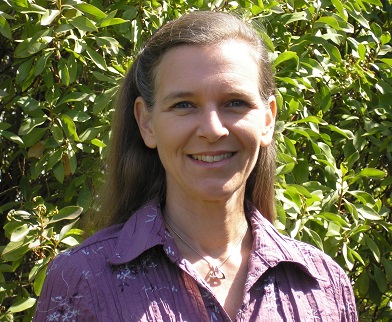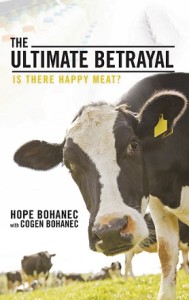
The Ultimate Betrayal will shock you with the real facts behind feel-good meat, dairy, egg, and fish labels
Hope Bohanec Exposes the Reality Behind Feel-Good Meat Labels
Is there any way in which “humane” meat, dairy, or eggs are better – for human health, the environment, or animals? In The Ultimate Betrayal, Hope Bohanec takes on this question. She presents surprising information that may shock consumers confused by myriad industry labels, such as “sustainable,” “local,” “natural,” “free-range,” “grass-fed,” “cage-free,” and “organic.”
The Ultimate Betrayal convincingly shows that feel-good buzzwords in animal agriculture are ploys to part consumers and their money. These terms also encourage those who desperately want to spare animal suffering and help the planet feel guiltless when they buy animal foods.
The hard-hitting research in this book leaves no wiggle-room for the happy meat industry. Contrasting factory farms and their advertised humane alternatives, Hope demonstrates far more similarities than differences. She bases her conclusions on interviews, visits to both alternative farm animal businesses and animal sanctuaries, and a wealth of published research. While the book is rich with facts, it is also highly readable journalism.
For example, if all farmed animals were raised genuinely free-range, it would take
close to five planet earths to supply them all with food and water. Grass-fed beef can produce 50 to 60% more greenhouse gas emissions then the same number of cows fed on grain. Hope peppers her book with such compelling facts. Her concern and compassion for animals bring the facts to life, as she presents the ethical reasons to not kill farmed animals, however they were raised.
I called Hope to learn more about her experiences as a vegan and an author. Hope grew up in the South with a typical meat-heavy diet. “I ate ribs, medium-rare steak, even Vienna sausages,” Hope shared. “I always loved animals and had animal pictures on my walls. When I was in high school, I started making connections between the food I was eating and the creatures I loved. My mom cooked a whole chicken, and when I saw it on the middle of our table, I realized it was a little animal, and I stopped eating meat. I didn’t know anything about being vegetarian, so I started researching it. Four years later, as I learned more about the cruelty of the egg and dairy industries, I decided to be vegan.”
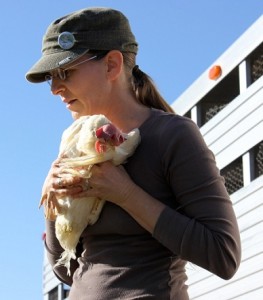
As a teen, Hope realized that she did not want to eat the chicken on her family’s table. Here she comforts a rescued chicken
Hope had moved to California and gotten her first job in a vegetarian restaurant when she stopped eating all animal foods. “I became an activist, for environmental causes. I moved to Humboldt County and did direct action to protect the redwoods. My most intense experience there was a tree-sit that lasted almost two months. I stayed high in the branches of the tree we were guarding, living in a rope hammock that allowed me to neither stand up nor lie down all the way. And loggers were felling trees all around me.”
After that, Hope found herself drawn even more deeply to the plight of farmed animals. “I moved to Sonoma County, and at first I continued direct action tactics to protect the animals. This got a lot of media attention, but did little to change people’s eating habits. So I switched my focus to educating people through leaflets and tabling at events. This was more effective. But then, in the last few years, my conversations with people changed. People felt their problems were being solved when they ate free-range eggs or local beef. I knew if we did not address this feel-good kind of animal agriculture, it would be hard to get real dietary change. So I started to work on The Ultimate Betrayal. I had to learn and share the truth.”
I asked Hope if she was surprised by the information she found in researching her
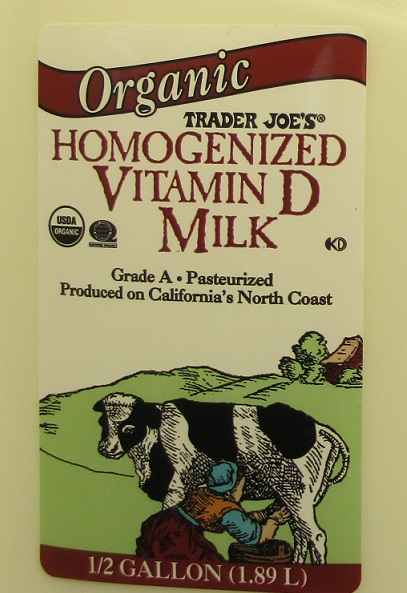
The organic dairy industry would have you believe the cows on their farms lead idyllic lives. In fact, they frequently suffer more agonizing mastitis pain than on regular dairy farms
book, and she had no trouble responding. “I thought when I started that I would find various alternatives to factory farming to be a bit better in some way, whether for the animals, the environment, or health. And I was prepared to say that in the book – to discuss some of the other options as preferable, and point out how. But this was not the case. I was shocked that animals were sometimes even worse off on farms labeled “humane” or something similar. For example, the cows in the worst pain from mastitis, an udder infection that is very common in dairy herds, receive no antibiotics for this agonizing condition in organic dairies, no treatment or pain relief at all. People working to help farmed animals should stop using the term “factory farming,” because it inadvertently creates an alternative that people prefer to believe is better. We should shift to language that lets people know that all animal agriculture, of whatever kind, is wrong.”
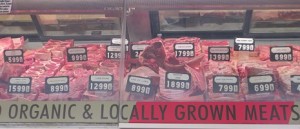
“Organic” and “local” meat is widely available – often at a considerably higher price than usual factory farmed meat. Unfortunately, this overpriced product is no better for you, the animals, or the planet
In addition to writing and speaking, Hope continues her activism by working with organizations that educate on farmed animal issues. She is Projects Manager for United Poultry Concerns and the Executive Director of Compassionate Living, a Sonoma County organization.
If you have been buying humane-labeled animal foods, The Ultimate Betrayal will open your eyes to industry deception, and quite possibly impact your food choices. If you are already vegan, this book will give you solid information to discuss this new breed of animal agriculture with people who tell you it’s okay to eat “happy meat.” Either way, this book is a must-read for anyone who cares about animals, their health, and the future of our planet.
If you enjoyed this post, you may want to sample some interesting whole foods, plant-based recipes featured on this site.
Intrigued? Now you can use our Whole Foods Blog Finder to target informative, fun postings on whole foods, plant-based diets. Quick information at no cost!
Blog posting by Janice Stanger, Ph.D. Janice authored The Perfect Formula Diet: How to Lose Weight and Get Healthy Now With Six Kinds of Whole Foods, an evidence-based book on whole foods, plant-diets. Happy meat is not healthy – learn which foods are genuinely health-promoting.
Tags: cage free eggs, grass fed beef, happy meat, Hope Bohanec, organic meat, organic milk, The Ultimate Betrayal
